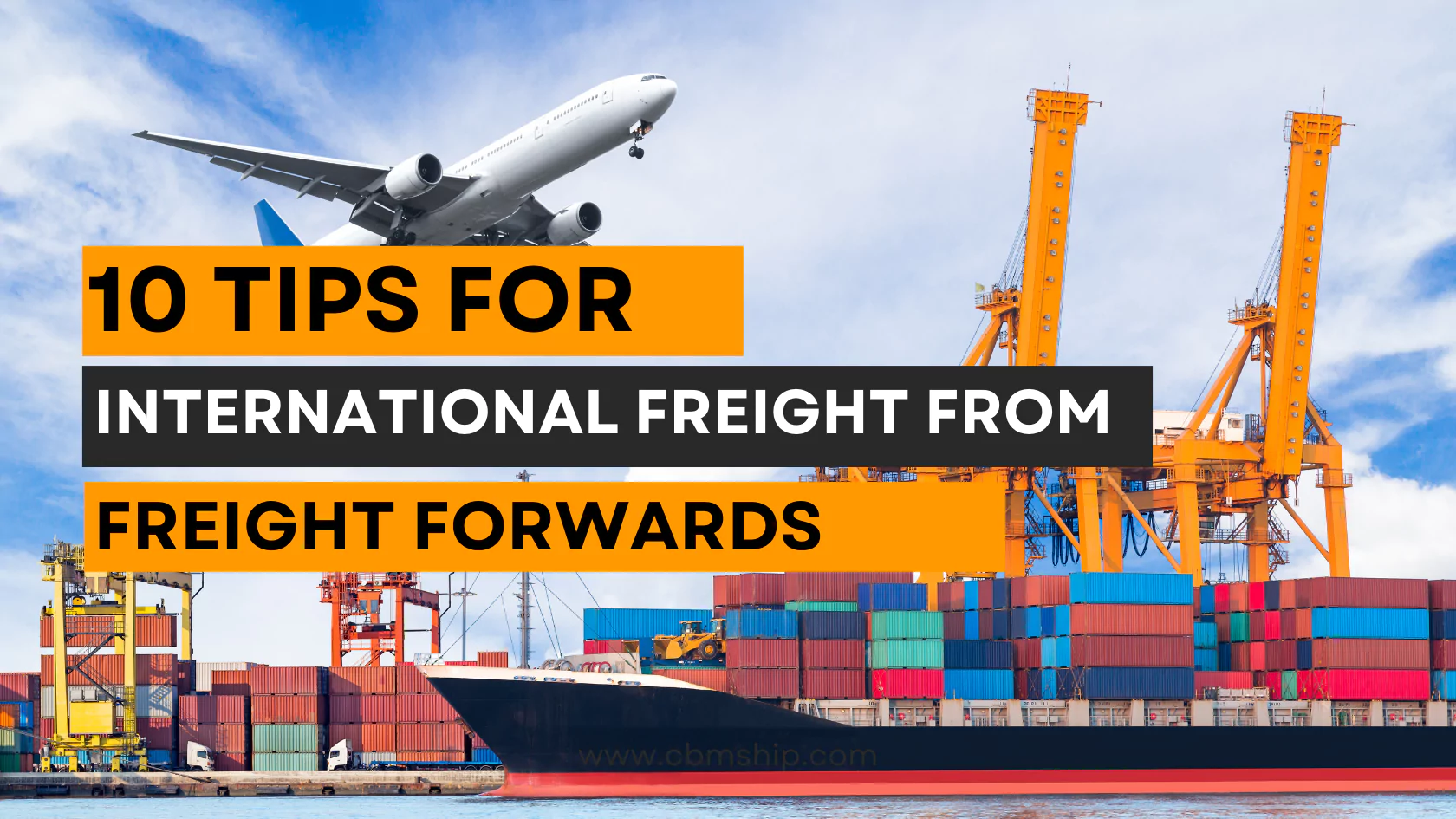Shipping goods internationally can be a complex and daunting process, but with the right strategies and partnerships, it can also be efficient and cost-effective. Whether you’re a seasoned shipper or new to international freight, these ten expert tips from freight forwarders will help you navigate the intricacies of global shipping and optimize your logistics operations.
Tip #1: Be Flexible with Your Shipping Route and Mode
Flexibility can significantly reduce costs and improve efficiency in international shipping. Rather than committing to a single route or mode of transportation, consider multiple options. For example, sea freight is often cheaper but slower than air freight. However, a combination of sea and air (known as sea-air) might provide a balance between cost and speed. Working with your freight forwarder, you can explore alternative routes and modes to find the best fit for your shipment’s requirements.
Tip #2: Take Busy Seasons into Account
Understanding and planning for peak shipping seasons can save you both time and money. The busiest periods for international shipping typically align with global holidays and retail peaks, such as Chinese New Year, Black Friday, and Christmas. During these times, freight rates can skyrocket, and delays are common. By scheduling shipments during off-peak times or planning well in advance for peak seasons, you can avoid inflated costs and ensure timely deliveries.
Tip #3: Get Clarity on Incoterms ASAP
Incoterms (International Commercial Terms) define the responsibilities of buyers and sellers in international transactions. Getting clarity on incoterms early in the process is crucial to avoid misunderstandings and additional costs. Incoterms specify who is responsible for shipping, insurance, customs clearance, and other logistics. Make sure you and your trading partners agree on the incoterms that best suit your transaction to prevent any unexpected liabilities or disputes.
Tip #4: Don’t Book Your Shipment Until Your Goods Have Been Packed
Booking your shipment before your goods are packed and ready can lead to unnecessary costs and logistical headaches. Freight forwarders advise that you only book once you have a clear understanding of the volume, weight, and dimensions of your cargo. This helps in providing accurate information to carriers and avoiding penalties for discrepancies. Properly packed and measured goods ensure smoother booking processes and more accurate freight charges.
Tip #5: Ask Your Forwarder Questions
Freight forwarders are experts in logistics and international shipping regulations. Don’t hesitate to ask them questions about any aspect of your shipment. Whether it’s about the best shipping route, documentation requirements, or handling specific goods, your forwarder can provide valuable insights and advice. Open communication helps build a strong relationship and ensures that you are well-informed about the shipping process.
Tip #6: Remember to Include Taxes and Fees in Your Freight Cost Calculations
When calculating freight costs, it’s essential to account for all additional taxes and fees. These can include customs duties, VAT, port charges, and various administrative fees. Neglecting these costs can lead to significant financial surprises. Work closely with your freight forwarder to get a comprehensive understanding of all potential charges associated with your shipment to budget accurately.
Tip #7: Ask Your Forwarder About Trade Agreements
International trade agreements can offer significant cost savings and advantages. For instance, free trade agreements (FTAs) between countries can reduce or eliminate tariffs on certain goods. Ask your freight forwarder about any relevant trade agreements that could benefit your shipments. They can help you navigate the documentation and compliance requirements to take full advantage of these agreements.
Tip #8: Don’t Forget Extra Licensing
Some products require special licenses or permits to be exported or imported. These can range from agricultural goods to high-tech electronics. Ensure that you have all the necessary documentation before shipping. Missing or incorrect licenses can lead to delays, fines, or even the seizure of your goods. Your freight forwarder can assist you in identifying and obtaining the required licenses.
Tip #9: Watch Out for Expired Amazon FBA Labels
For businesses that use Amazon FBA (Fulfillment by Amazon), it’s crucial to keep track of your labels. Expired or incorrect labels can cause significant delays and additional costs. Regularly check the validity of your labels and ensure they meet Amazon’s requirements. Freight forwarders familiar with FBA processes can help manage this aspect, ensuring smooth and timely delivery to Amazon warehouses.
Tip #10: Treat Your Relationship with Your Forwarder as a Partnership
Building a strong, collaborative relationship with your freight forwarder is key to successful international shipping. Treat them as a partner rather than just a service provider. Regular communication, mutual respect, and a shared commitment to your shipping goals can lead to better service and more favorable terms. A good forwarder will go the extra mile to ensure your shipments are handled efficiently and cost-effectively.
Understanding International Freight: A Deeper Dive
The Role of Freight Forwarders
Freight forwarders act as intermediaries between shippers and carriers, coordinating the logistics of moving goods from one country to another. They handle a variety of tasks, including booking cargo space, preparing shipping documentation, and arranging for cargo insurance. By leveraging their extensive network and expertise, freight forwarders can provide shippers with the most efficient and cost-effective shipping solutions.
Common Modes of International Freight
There are several modes of transportation used in international freight, each with its own advantages and disadvantages:
- Sea Freight: Ideal for large, bulky shipments that are not time-sensitive. Sea freight is the most cost-effective mode but has longer transit times.
- Air Freight: Suitable for high-value or time-sensitive goods. Air freight is faster but more expensive compared to sea freight.
- Road Freight: Often used for cross-border shipments within the same continent. Road freight offers flexibility and door-to-door service.
- Rail Freight: A good option for shipping large volumes of goods over long distances on land. Rail freight is faster than sea freight and cheaper than air freight.
Documentation Requirements
Proper documentation is crucial for the smooth movement of goods across international borders. Key documents include:
- Bill of Lading (BOL): A contract between the shipper and the carrier that details the type, quantity, and destination of the goods.
- Commercial Invoice: A document that provides information about the goods being shipped, including their value, description, and the parties involved in the transaction.
- Packing List: A detailed list of the contents of each package being shipped.
- Certificate of Origin: A document that certifies the country in which the goods were manufactured.
- Import/Export Licenses: Permits required for certain goods to enter or leave a country.
Customs Clearance Process
Customs clearance is the process of moving goods through customs authorities to allow them to enter or leave a country. It involves:
- Document Submission: Providing all necessary documents to customs authorities.
- Duties and Taxes: Paying any applicable customs duties and taxes.
- Inspections: Undergoing inspections to ensure compliance with regulations.
- Release of Goods: Once cleared, the goods are released for delivery to their final destination.
Freight Cost Factors
Several factors influence the cost of international freight, including:
- Weight and Volume: Heavier and bulkier shipments cost more to transport.
- Distance: Longer shipping distances result in higher costs.
- Mode of Transport: Air freight is more expensive than sea freight.
- Fuel Surcharges: Fluctuations in fuel prices can affect shipping costs.
- Customs Duties and Taxes: Import and export duties, as well as other taxes, add to the overall cost.
Incoterms Explained
Incoterms (International Commercial Terms) are a set of rules published by the International Chamber of Commerce (ICC) that define the responsibilities of buyers and sellers in international trade. Common Incoterms include:
- EXW (Ex Works): The buyer takes on most of the responsibility, including transportation and customs clearance.
- FOB (Free On Board): The seller is responsible for delivering the goods to the port of shipment. The buyer assumes responsibility once the goods are on board the vessel.
- CIF (Cost, Insurance, and Freight): The seller covers the cost of shipping and insurance to the destination port, but the buyer is responsible for import duties and taxes.
- DAP (Delivered At Place): The seller is responsible for delivering the goods to a specified location, excluding import duties and taxes.
Choosing the Right Freight Forwarder
Selecting the right freight forwarder is crucial for successful international shipping. Consider the following when choosing a forwarder:
- Experience and Expertise: Look for forwarders with experience in your industry and knowledge of the specific routes and regulations.
- Network and Resources: A wide network of partners and resources can offer more flexibility and options.
- Customer Service: Good communication and responsive customer service are essential for addressing issues and ensuring smooth operations.
- Cost and Value: Compare quotes and services to find a forwarder that offers the best value for your shipping needs.
Optimizing Freight Operations
To optimize your international freight operations, consider the following strategies:
- Consolidation: Combine smaller shipments into a larger one to reduce costs.
- Inventory Management: Maintain optimal inventory levels to avoid overstocking or stockouts.
- Technology: Utilize logistics software and tracking tools to improve visibility and efficiency.
- Sustainability: Implement eco-friendly practices, such as using recyclable packaging and optimizing routes to reduce your carbon footprint.
Conclusion
International freight shipping is a complex but manageable process with the right knowledge and partnerships. By following these ten expert tips and understanding the intricacies of global logistics, you can optimize your shipping operations, reduce costs, and ensure timely deliveries. Treat your relationship with your freight forwarder as a partnership, and leverage their expertise to navigate the challenges of international trade successfully.
FAQs
- What is the role of a freight forwarder?
A freight forwarder acts as an intermediary between the shipper and the carrier, handling logistics, documentation, and coordination of shipments. - How can I reduce international shipping costs?
You can reduce costs by consolidating shipments, choosing cost-effective routes and modes, and taking advantage of trade agreements. - What are incoterms and why are they important?
Incoterms define the responsibilities of buyers and sellers in international trade, clarifying who is responsible for shipping, insurance, customs clearance, and other logistics. - What documents are required for international shipping?
Key documents include the bill of lading, commercial invoice, packing list, certificate of origin, and import/export licenses. - How do customs duties and taxes impact freight costs?
Customs duties and taxes can significantly increase freight costs, so it’s important to factor them into your budget and work with your forwarder to understand these charges. - What is the difference between air freight and sea freight?
Air freight is faster but more expensive, while sea freight is cost-effective for large, bulky shipments but has longer transit times. - How do I choose the right freight forwarder?
Consider their experience, expertise, network, customer service, and cost when choosing a forwarder. - Why is flexibility important in shipping routes and modes?
Flexibility allows you to explore alternative routes and modes that might offer better cost and efficiency for your shipments. - What should I do if my shipment is delayed?
Contact your freight forwarder to understand the cause of the delay and explore alternative solutions to minimize impact. - How can I ensure my shipment complies with regulations?
Work with your freight forwarder to understand and meet all regulatory requirements, including obtaining necessary licenses and completing accurate documentation.




Comments are closed